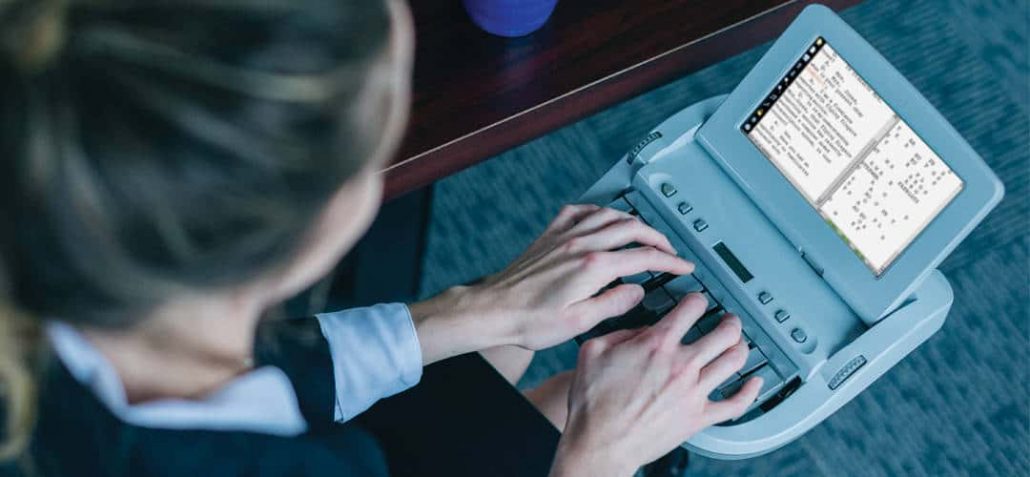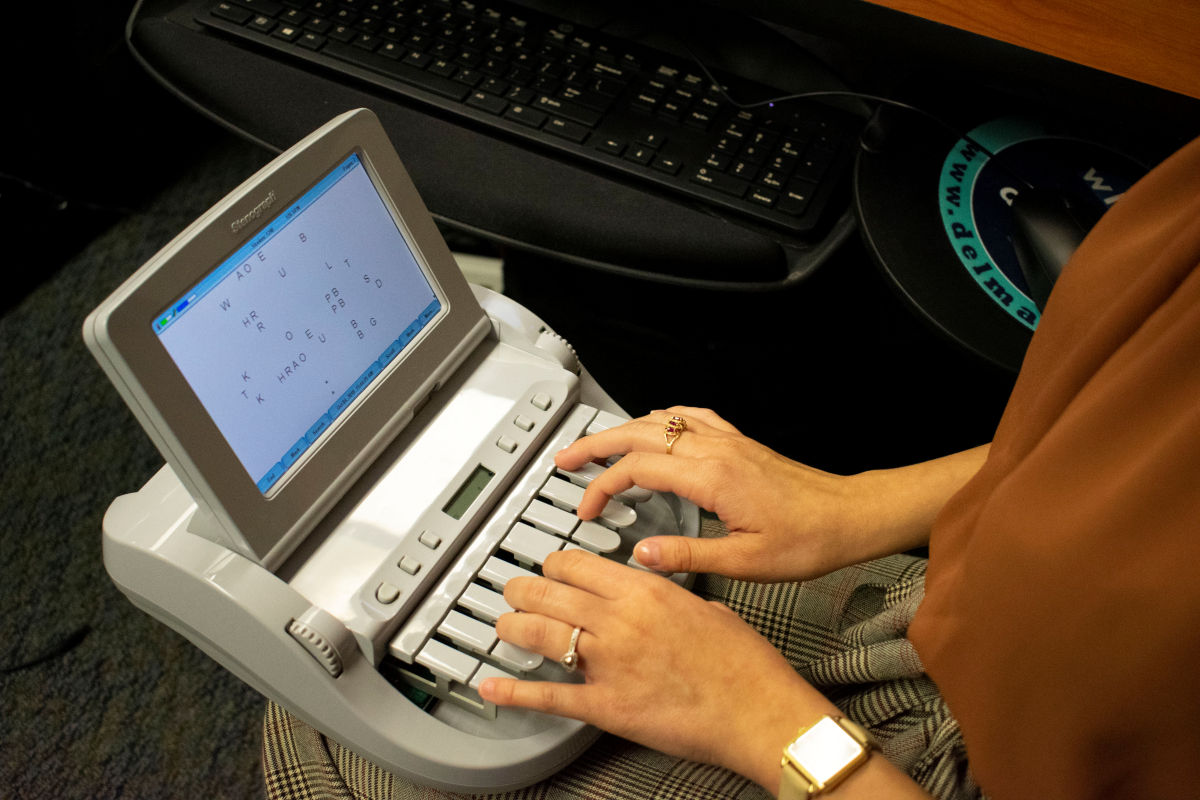Court Reporting Solutions-- Trusted and Counted On the Lawful Sector
Comprehending the Relevance of Court Reporting in Legal Solutions and Process
Court coverage plays a pivotal duty in the lawful landscape, offering as the backbone of precise documents in numerous lawful proceedings. By offering verbatim transcripts, court reporters make sure that every statement and argument is diligently captured, thereby safeguarding the integrity of the judicial procedure.
Role of Court Reporters

In enhancement to transcription, court press reporters are often entrusted with handling and maintaining the flow of proceedings. They should excel in lawful terminology and have a thorough understanding of court room procedures to make sure that the record reflects the context and nuances of the dialogue. Their work may likewise prolong past standard courts, encompassing administrative hearings, settlements, and other legal settings where documentation is important.
Furthermore, stenotype reporter might supply real-time reporting, enabling instant access to transcripts during process, which can be critical for the reliable management of justice. By making sure that an exact record is maintained, stenotype reporter support the honesty of the legal procedure, assisting in appeals and offering as an important resource for lawful experts in their search of justice.
Relevance of Precision

The function of precision expands past mere transcription; it encompasses the capacity to capture the nuances of speech, including tone, emphasis, and non-verbal signs, which can be important in recognizing the context of declarations made. A precise record guarantees that all celebrations involved-- attorneys, juries, and judges-- have access to the same info, cultivating fairness and transparency in the judicial process.
In addition, accurate records are vital for the appellate process, where higher courts depend on them to assess reduced court decisions. Errors can endanger the result of an allure, potentially affecting a celebration's freedoms and rights. Thus, the dedication to precision in court reporting is not just a professional commitment yet a foundation of justice that supports the guideline of law.
Kinds Of Lawful Procedures
Covering a vast selection of legal contexts, court reporters are vital in different kinds of legal procedures, each needing unique approaches and abilities. Among one of the most typical types are civil lawsuits, criminal trials, and management hearings. In civil lawsuits, stenotype reporter record depositions, testaments, and movements, making certain that every information is documented properly for possible allures or settlements.
In criminal tests, the role of court reporters comes to be even much more critical, as they record all elements of the procedures, including court choices, witness testimonies, and punishing phases - Court Reporting. The precision and immediacy of these records are extremely important, provided the potential effects for offenders and the integrity of the judicial system
Management hearings, often carried out by governmental firms, likewise count on stenotype reporter to maintain main records of procedures. These hearings can include disagreements concerning regulatory compliance, work concerns, or specialist licensing, necessitating specific documentation.
Furthermore, specialized process such as arbitration this page and mediation need stenotype reporter to capture the nuances of arrangements and agreements. Each kind of legal action provides distinct challenges, highlighting the importance of seasoned court press reporters in maintaining the integrity of the lawful procedure.
Technology in Court Coverage
Innovations in technology have revolutionized the area of court reporting, improving both efficiency and accuracy in the transcription process. Typical methods of hands-on note-taking have actually been supplemented and, in some cases, changed by sophisticated digital devices that enhance process and improve accuracy (Court Reporting). Stenotype reporter now use advanced steno machines geared up with real-time transcription abilities, enabling prompt accessibility to a verbatim account of proceedings
In addition, the integration of speech recognition software program has actually further changed the coverage landscape. This modern technology makes it possible for the automated transcription of talked words, considerably decreasing the moment needed for producing official records. Furthermore, cloud-based systems help with simple storage and retrieval of transcripts, making certain that lawful specialists can access essential papers from anywhere, any time.
Video clip conferencing devices have additionally emerged as crucial elements in remote depositions and hearings, assisting stenotype reporter record procedures in real-time, despite place. The combination of these technical innovations not just enhances the precision of legal paperwork yet likewise sustains a more versatile and reliable legal procedure. As the area remains to develop, embracing these innovations will be critical in fulfilling the growing demands of the lawful industry.
Moral Considerations in Reporting
The integration of modern technology in court reporting brings with it a set of moral factors to consider that professionals should browse carefully. As court reporters significantly utilize electronic tools, problems surrounding accuracy, honesty, and privacy come to the forefront. Safeguarding sensitive details is extremely important; press reporters need to ensure that any kind of electronic documents are securely stored and shared only with authorized individuals.
Furthermore, the accuracy of transcriptions is important. Utilizing software application for real-time reporting does not absolve stenotype reporter from the responsibility of making sure that the end product is precise. Moral responsibilities dictate that any errors must be quickly corrected and interacted to pertinent parties.

Lastly, conformity with legal standards and industry policies is necessary. Court press reporters need to remain notified about advancing ethical standards to support the trust put in them by the lawful system. By attending to these ethical factors to consider, stenotype reporter can proceed to give important solutions in legal proceedings while preserving public confidence.
Final Thought
To conclude, court reporting plays a vital duty in the lawful system by ensuring dependable and accurate paperwork of judicial process. The meticulous work of court press reporters supports the check it out stability of the over here lawful process and supports the legal rights of people involved. The combination of modern technology boosts efficiency while keeping honest standards. Eventually, the value of court coverage can not be overstated, as it works as a vital foundation for justness, transparency, and the efficient management of justice.
Court coverage plays an essential duty in the lawful landscape, offering as the foundation of precise paperwork in different legal procedures.Court reporters constantly play a vital duty in the judicial procedure by producing precise, verbatim records of legal proceedings.Furthermore, precise transcripts are vital for the appellate process, where greater courts count on them to assess reduced court decisions.Covering a wide variety of lawful contexts, court reporters are vital in numerous types of legal procedures, each calling for distinctive approaches and skills. By attending to these ethical considerations, court press reporters can continue to provide invaluable services in legal procedures while keeping public self-confidence.